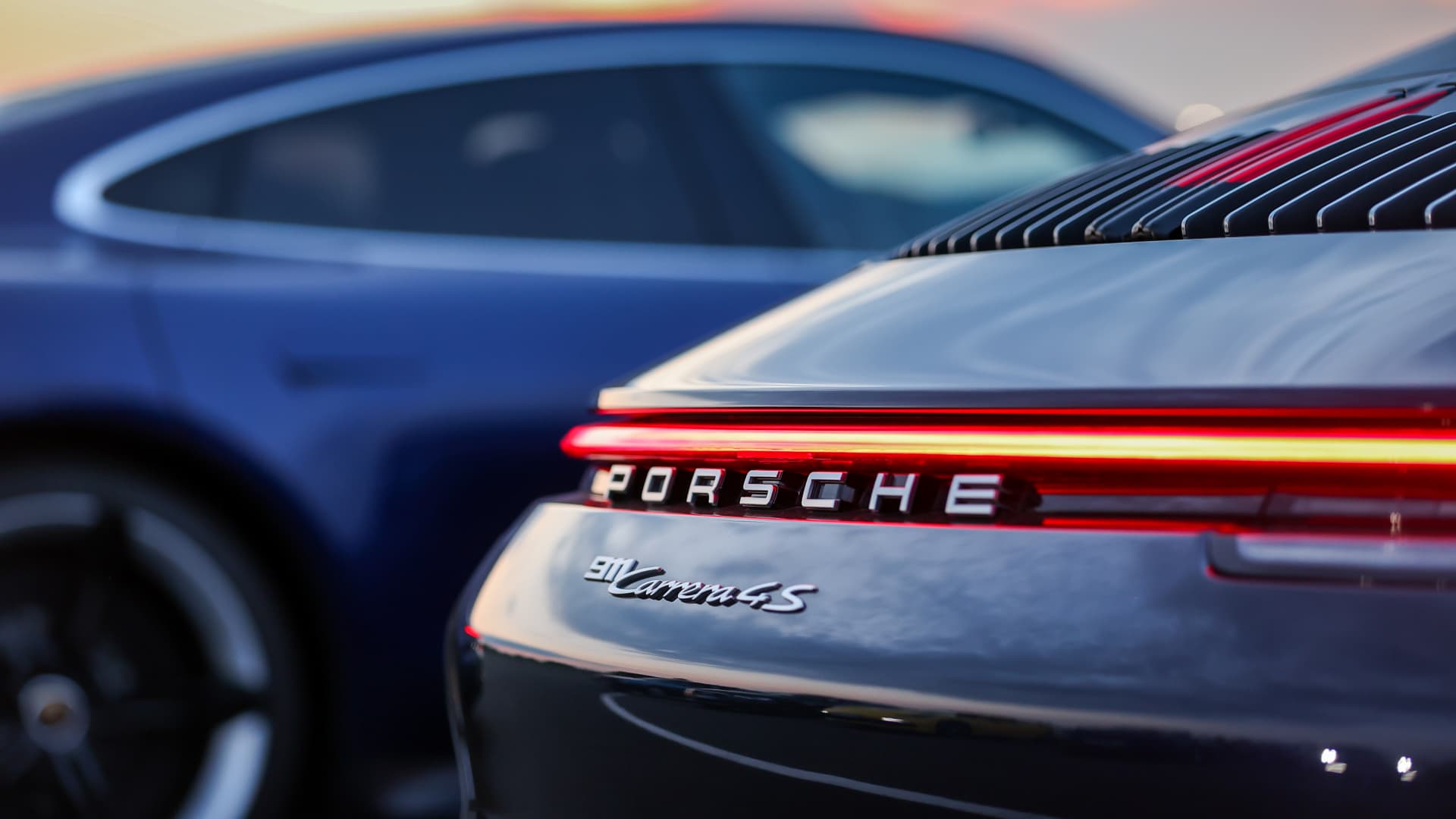[ad_1]
A Porsche 911 Carrera 4S stands in the evening light in a drive-in cinema on the circuit of the Leipzig Porsche factory.
Jan Woitas | picture alliance via Getty Images
Volkswagen’s leadership will meet later on Monday to decide on whether to proceed with the much-anticipated listing of Porsche, as an escalation in an energy standoff between Russia and Europe has caused major market turbulence.
Volkswagen will publish a so-called intention to float for the potential initial public offering in late September or early October, assuming its supervisory board gives the go-ahead at its meeting late on Monday.
But the carmaker could shorten or extend the four-week period for buyers to express interest, or pull its plans altogether, should investors not express enough enthusiasm for the listing, two sources close to negotiations said.
“It would be the technical go-ahead, nothing more,” one of the sources said of a decision in favor of triggering a listing. “It’s paving the way, but this would not guarantee that the stock market bell will ring in the end.”
The intention to float is expected to include an offering to retail investors in countries in Europe including France, Spain, and Italy, a source close to negotiations said, in an attempt to tap into Porsche’s loyal fan base.
If investors value the sports-car brand at the high end of estimates, ranging between 60-85 billion euros ($60-$84 billion), the IPO could be the largest in German history and the biggest in Europe since 1999, Refinitiv data showed.
Under a framework deal struck between the two parties in February on the structure of a potential listing, just 12.5% of Porsche’s stock will be sold on the open market – but even that could generate up to 10.6 billion euros, based on Reuters calculations.
Analysts at Stifel said: “VW should work on its timing: the plan to IPO was announced the very same day Russia invaded Ukraine, the ‘Intention to Float’ comes out exactly when Russia stops supplying gas to Germany.”
A framework deal for a potential Porsche IPO was announced the same week Russia invaded Ukraine.
The Stifel analysts also said the plan was “clearly positive” for Volkswagen and top shareholder Porsche.
Shares in both companies still fell along with the broader market on Monday following Russia’s move to indefinitely suspend flows via the Nord Stream 1 pipeline.
In an internal interview published on Monday, Volkswagen finance chief and chief operating officer Arno Antlitz reiterated the carmaker’s argument that a listing was key to funding its 52-billion-euro transition to electrification.
Porsche’s status as a specialized luxury brand able to bump up prices makes it a moneymaker for the Volkswagen Group. Porsche’s operating profit jumped 22% in the first half of this year in contrast to an 8% fall at the mass market-oriented Volkswagen brand.
“This is a key element for the Group, especially because the possible proceeds would give us more flexibility to further accelerate the transformation,” Antlitz said in the interview.
But some investors have questioned the timing of a stock market debut, with European shares on a downward spiral, inflation at record highs and Russia halting gas supply.
Luxury carmakers are not immune to the stock market slide, with Aston Martin’s stock down 11% on Monday, having earlier dropped 14%, after launching a 575.8 million pound ($662.9 million) rights issue of four new shares for each existing share.
“The timing is fundamentally bad,” Ingo Speich, head of sustainability and corporate governance at top-20 Volkswagen investor Deka Investment, said, declining to comment on whether Deka would buy Porsche shares. “Market conditions are currently very unfavorable.”
[ad_2]
Image and article originally from www.cnbc.com. Read the original article here.

